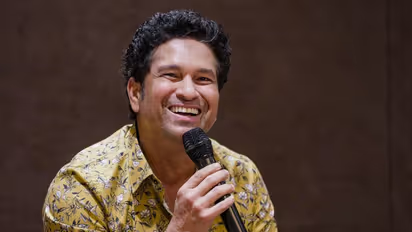Sachin Tendulkar's 50th birthday: Former India coach Anshuman Gaekwad relives Master Blaster's 'peak'
Published : Apr 22, 2023, 03:58 PM IST
Sachin Tendulkar is two days short of his landmark 50th birthday. Ahead of it, former Indian coach Anshuman Gaekwad has recalled the Master Blaster's prime days, revealing that he always "wanted to be somebody in the game".
Stay on top of all the latest Sports News, including Cricket News, Football News, WWE News, and updates from Other Sports around the world. Get live scores, match highlights, player stats, and expert analysis of every major tournament. Download the Asianet News Official App to never miss a sporting moment and stay connected to the action anytime, anywhere.
Read more Photos on
